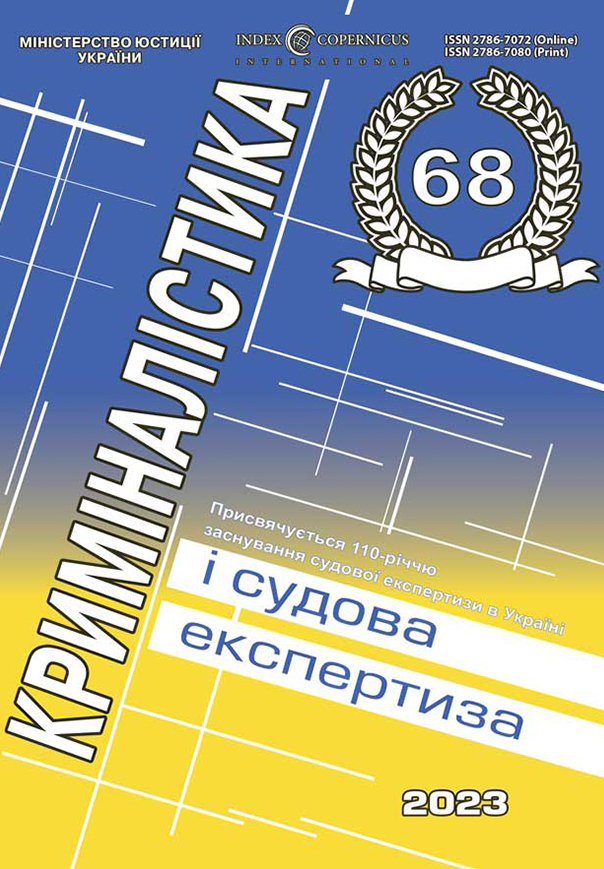DOI: https://doi.org/10.33994/kndise.2023.68.15
О. Stepanchenko
The article discusses the problematic issues of investigating crimes related to domestic violence. The practice of the Criminal Court of Cassation as part of the Supreme Court regarding the concept of systematic domestic violence is analyzed.
Some features of the interrogation of victims of domestic violence, namely women and minors, are revealed. It is proposed to change Part 1 of Art. 354 of the Criminal Code of Ukraine, making the presence of a psychologist mandatory during the interrogation of a minor witness or victim. Recommendations for optimization of the process of investigation and prevention of the specified crime are proposed. A systematic analysis of domestic legislative acts, specialized literature, as well as expert practice, made it possible to make separate proposals for improving the theoretical and legal foundations for the investigation of crimes related to domestic violence.
The need to review the current legislation of Ukraine for the presence of measures provided for by the Budapest and Istanbul Conventions, and to enshrine at the legislative level the concept and responsibility for domestic cyber-violence was emphasized.
Key words: domestic violence, investigation, evidence, systematicity, victim, interrogation, domestic cyber violence.

